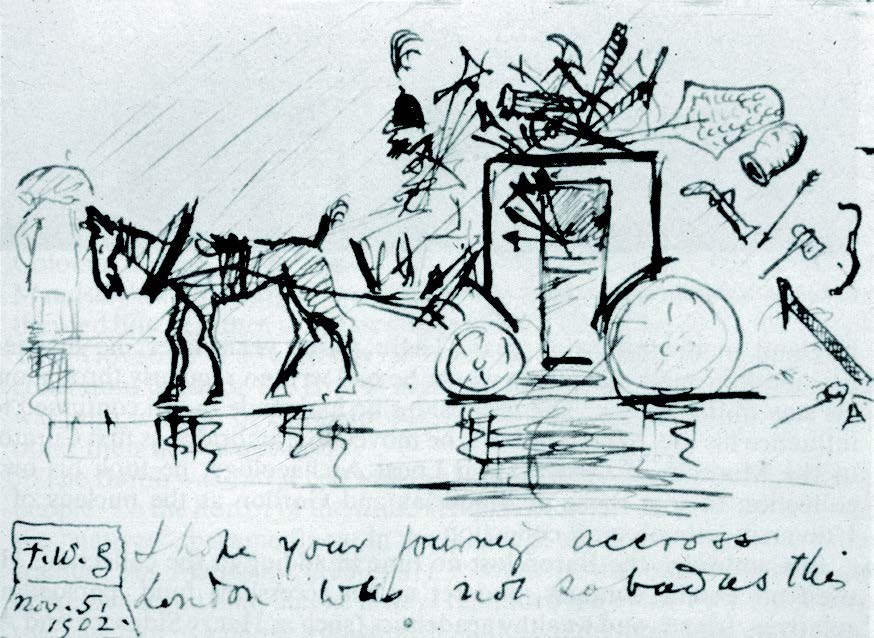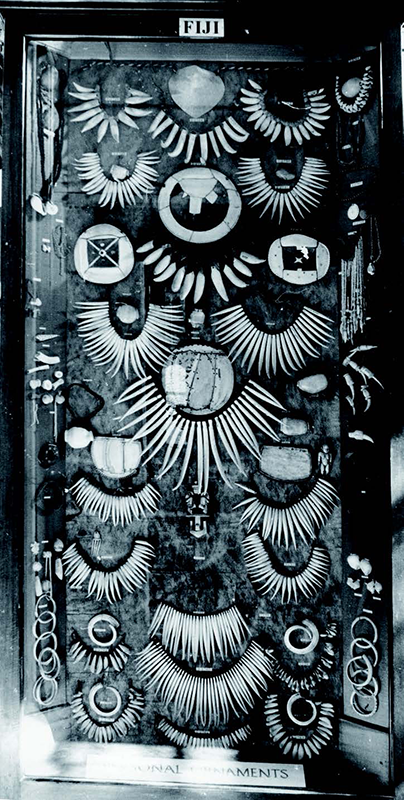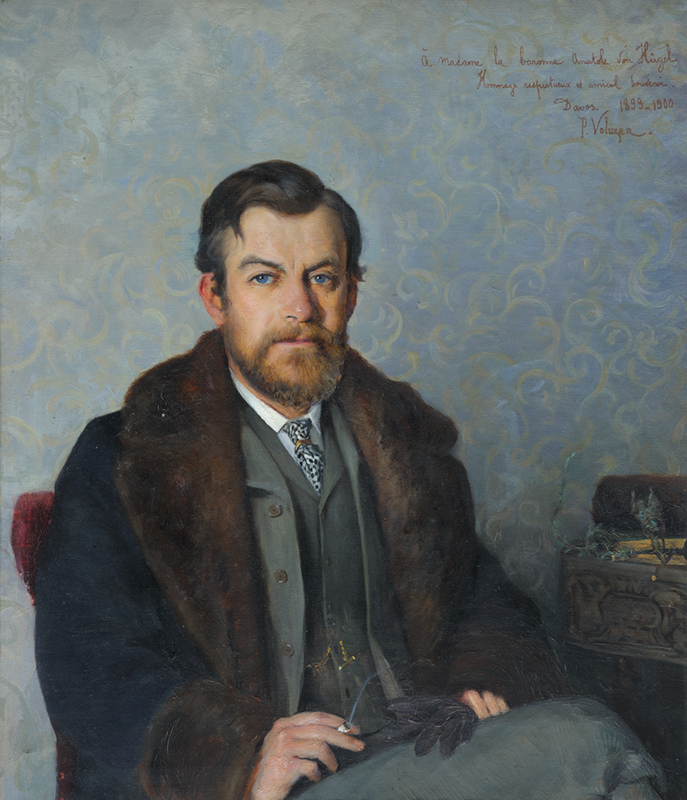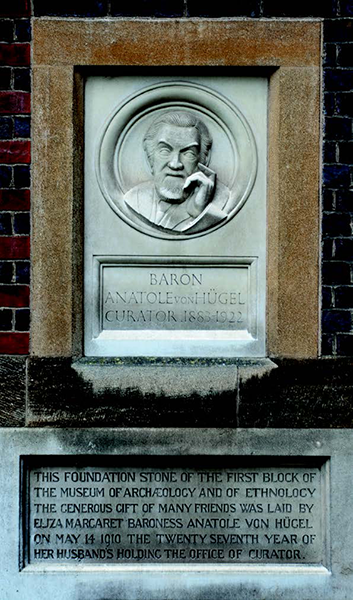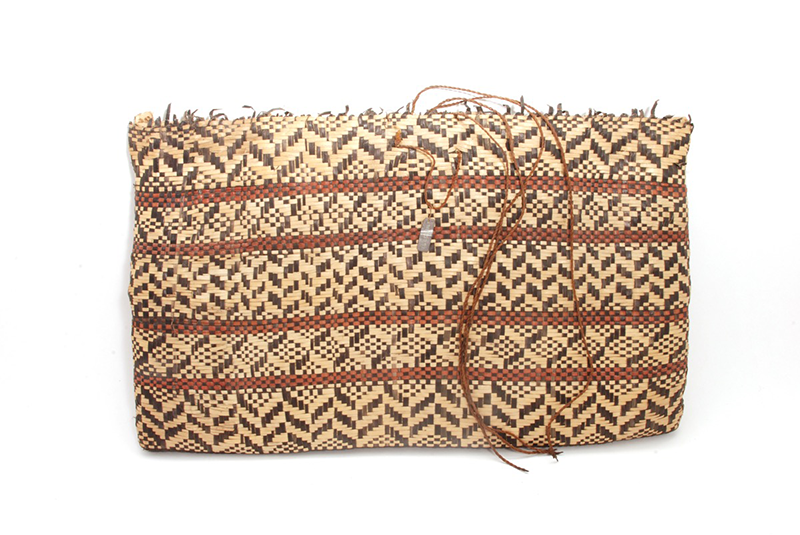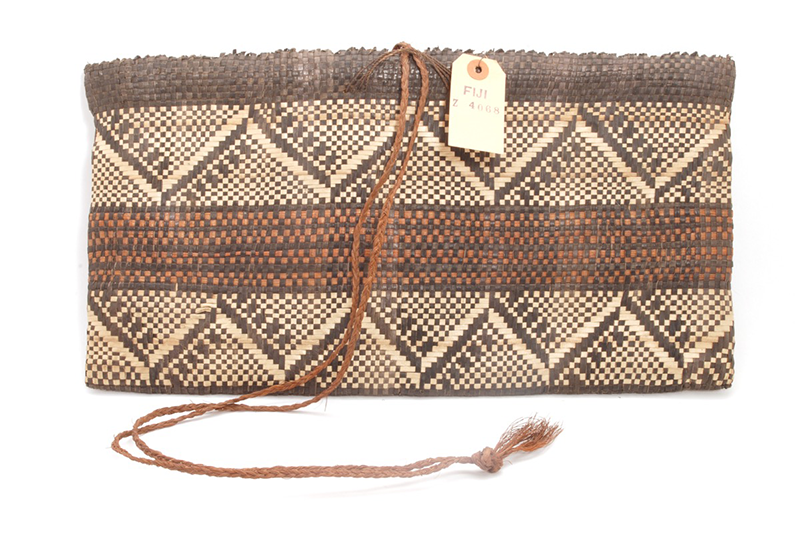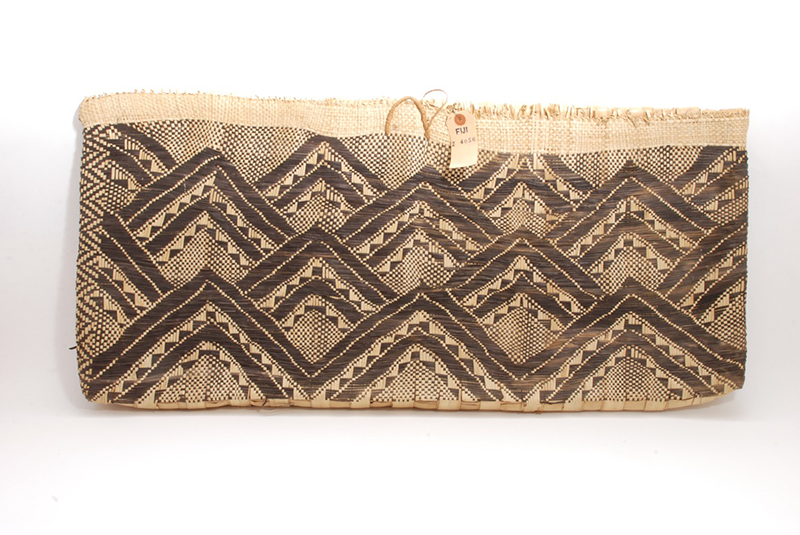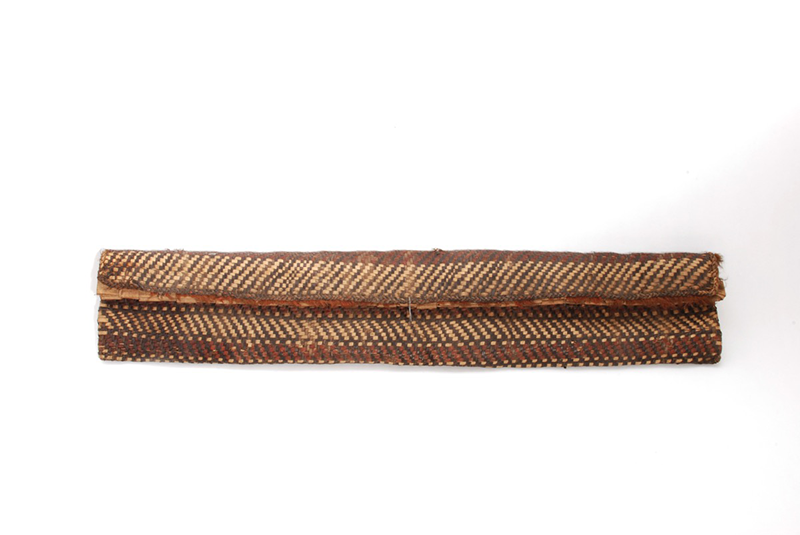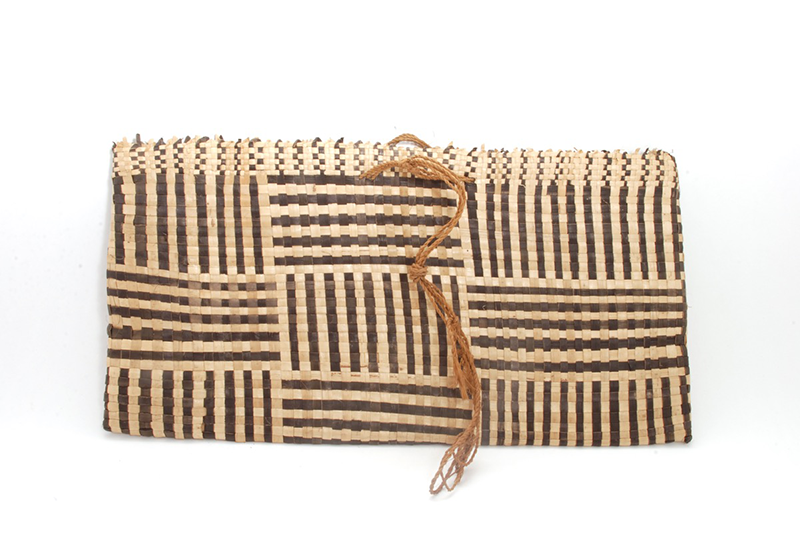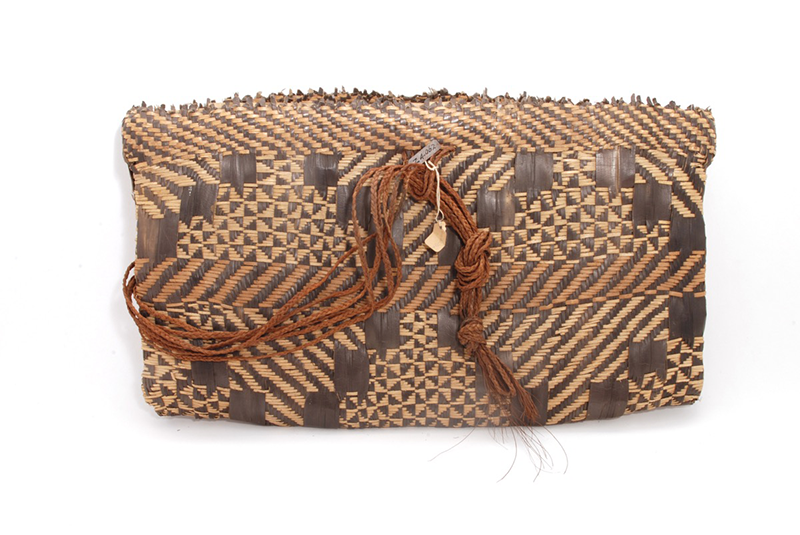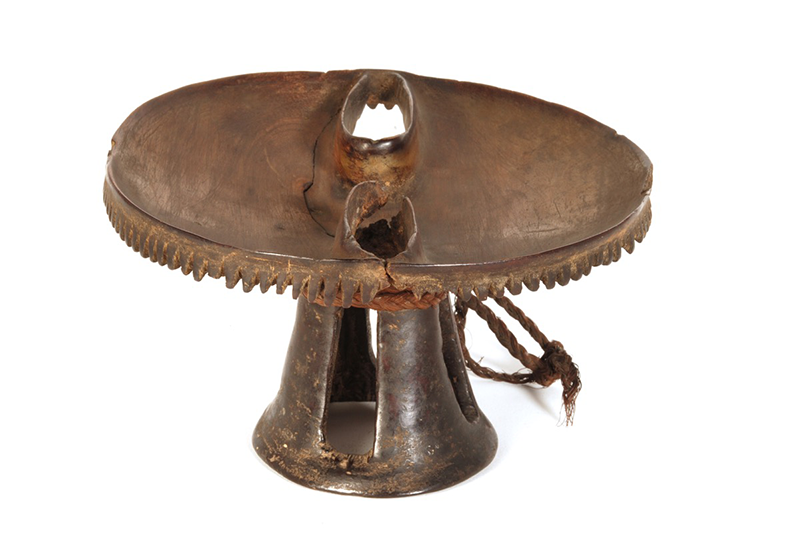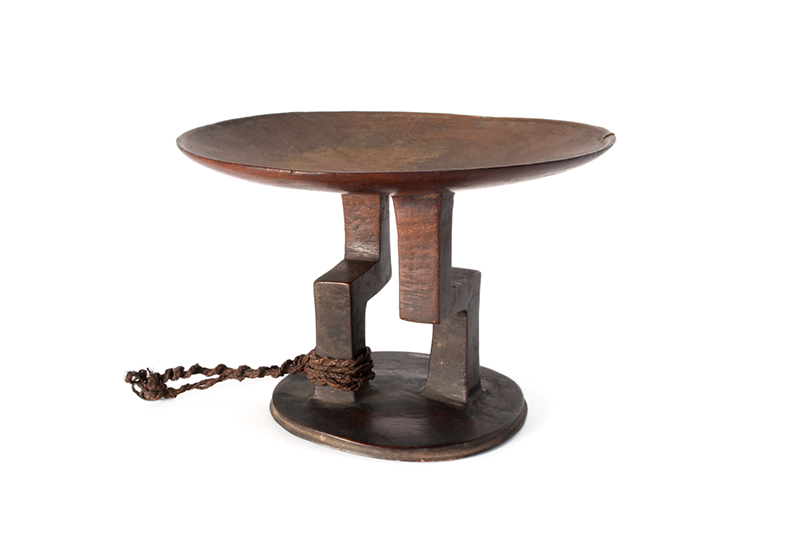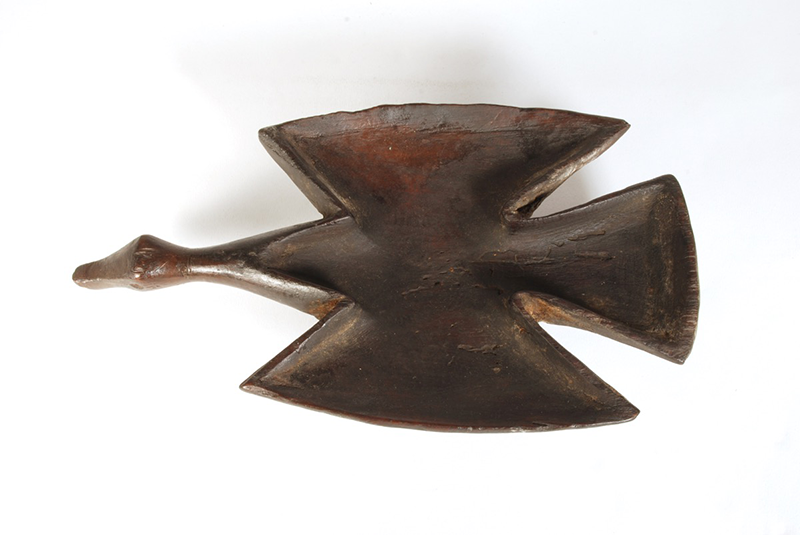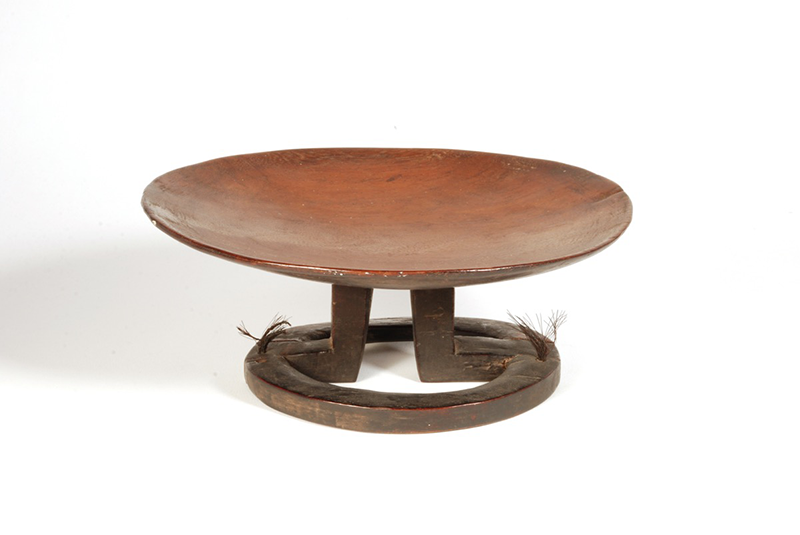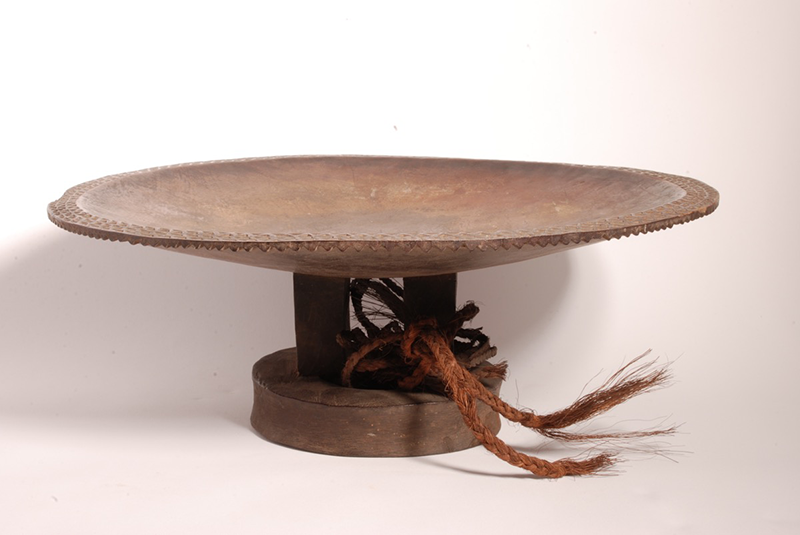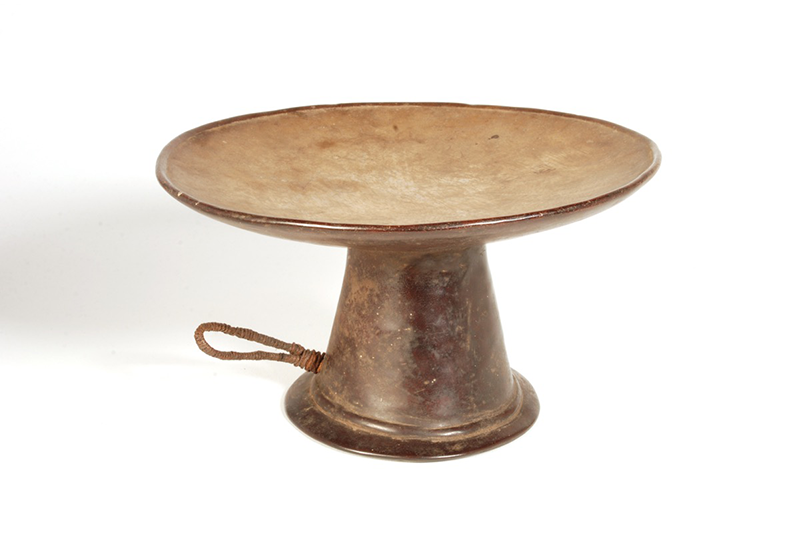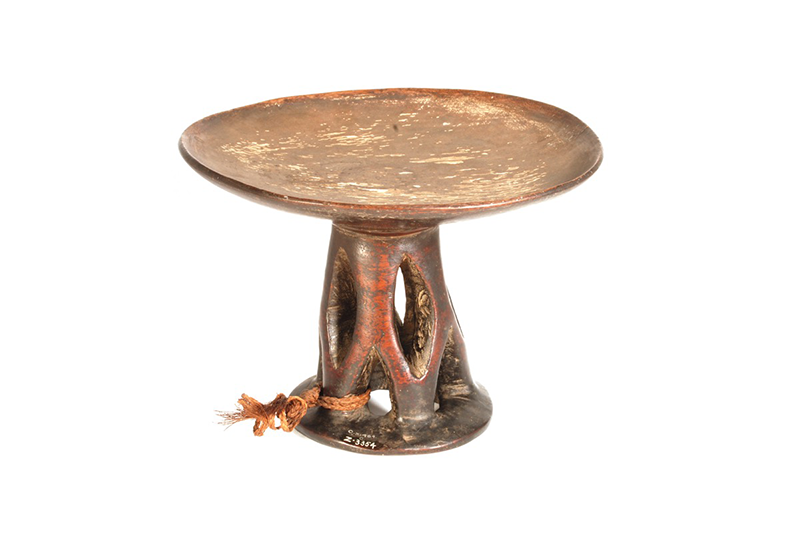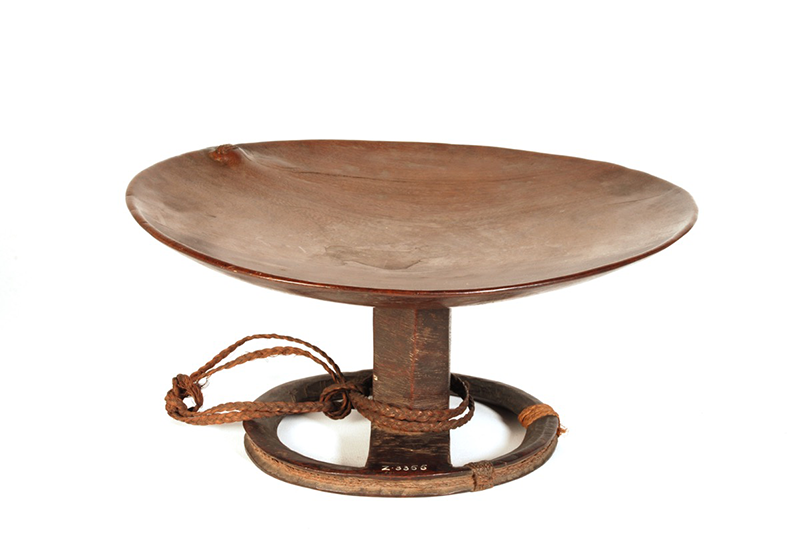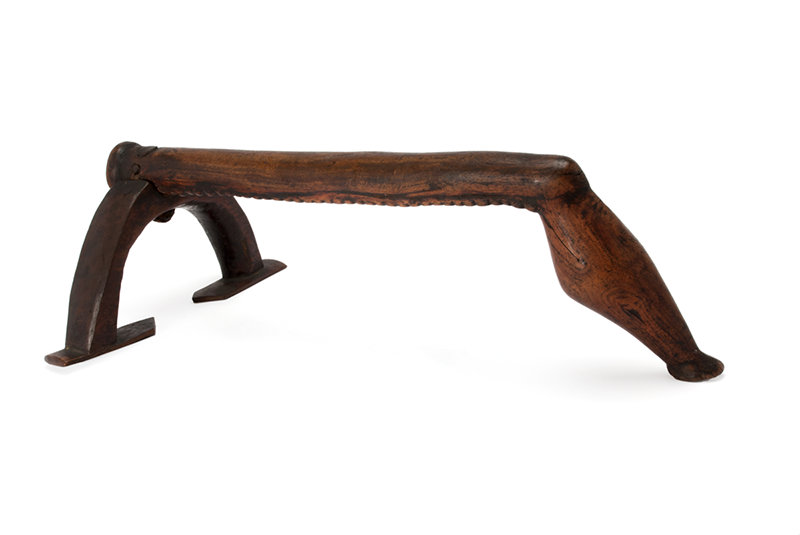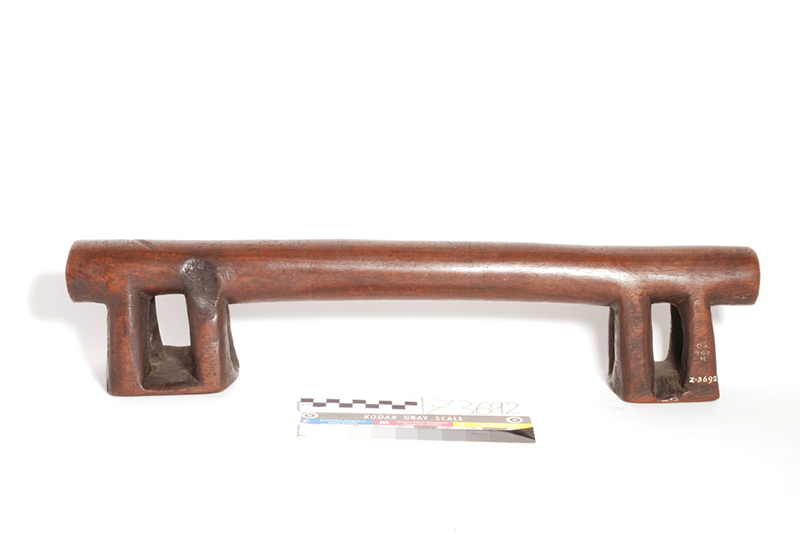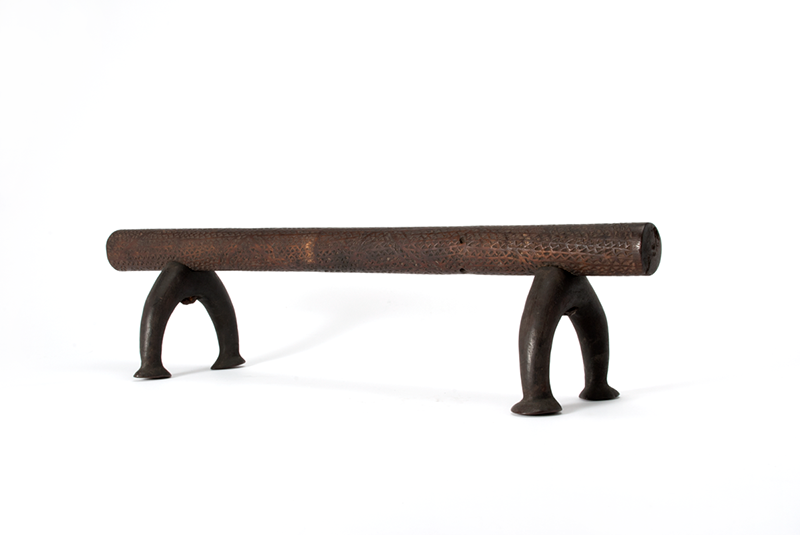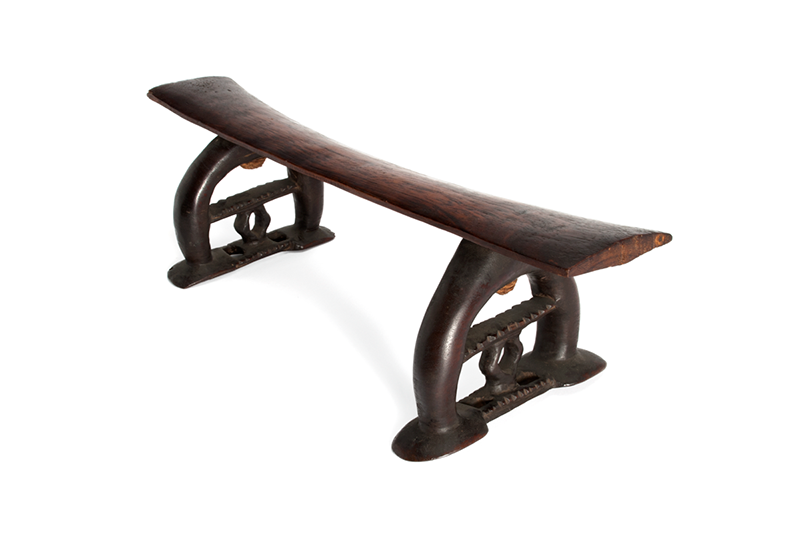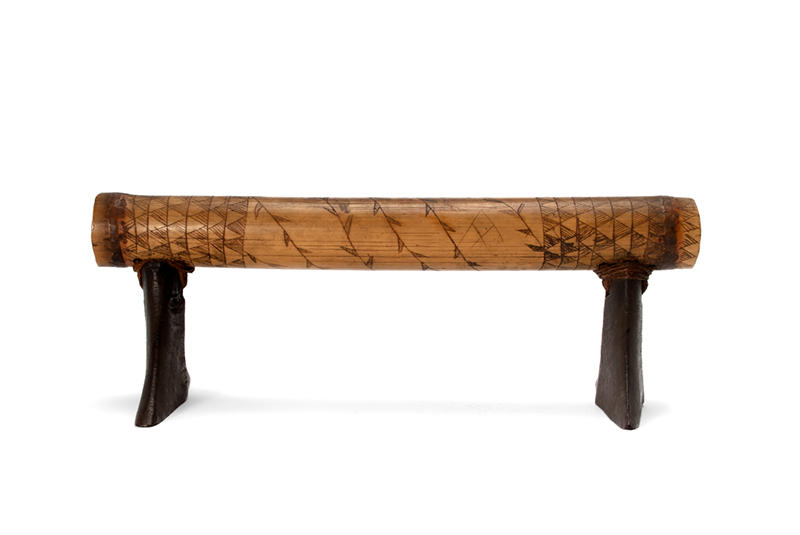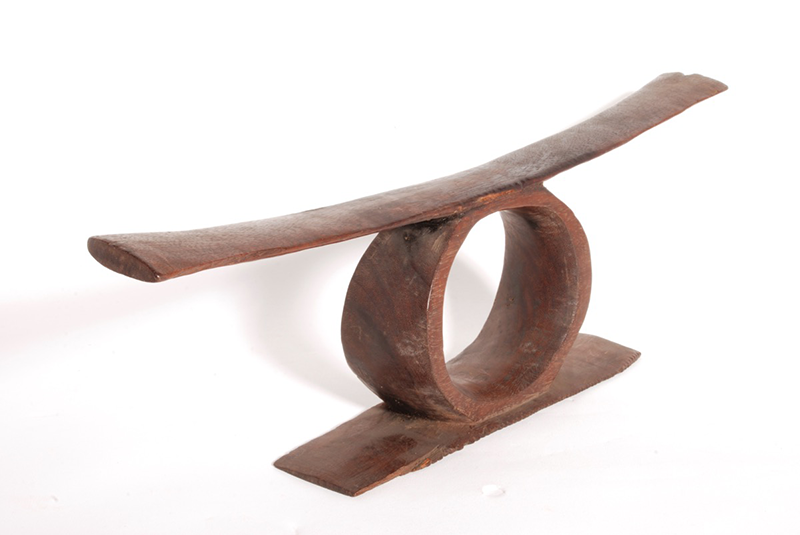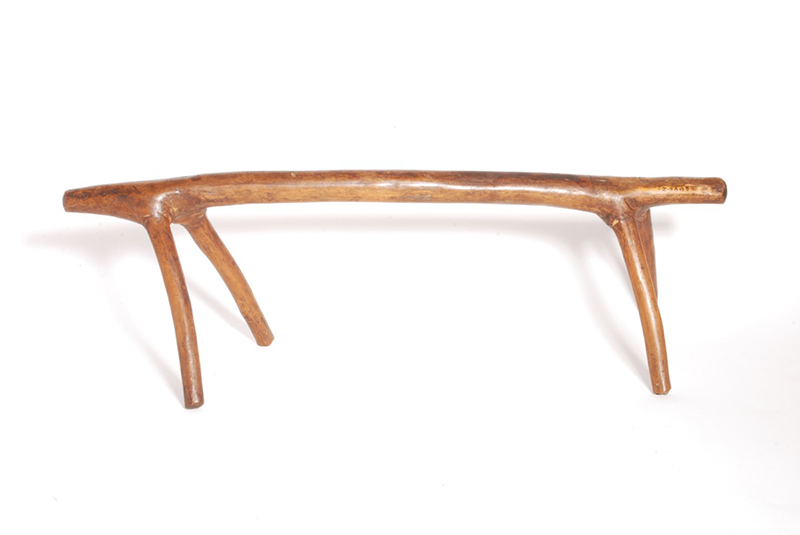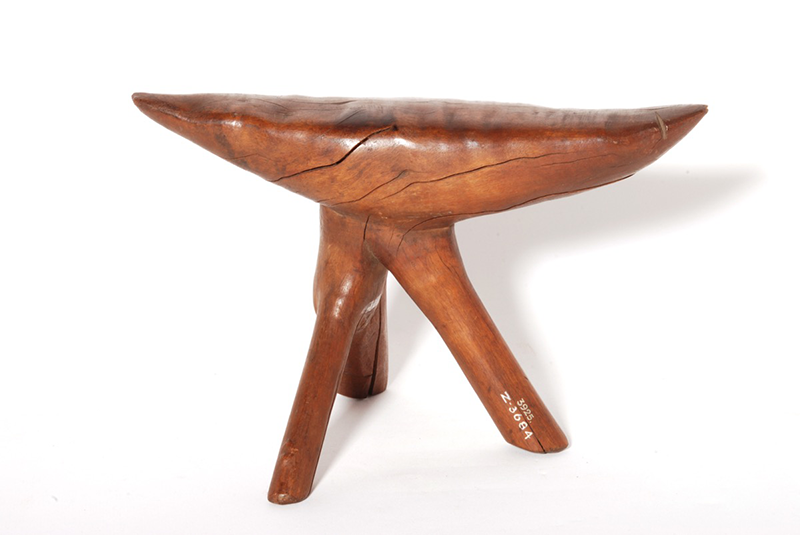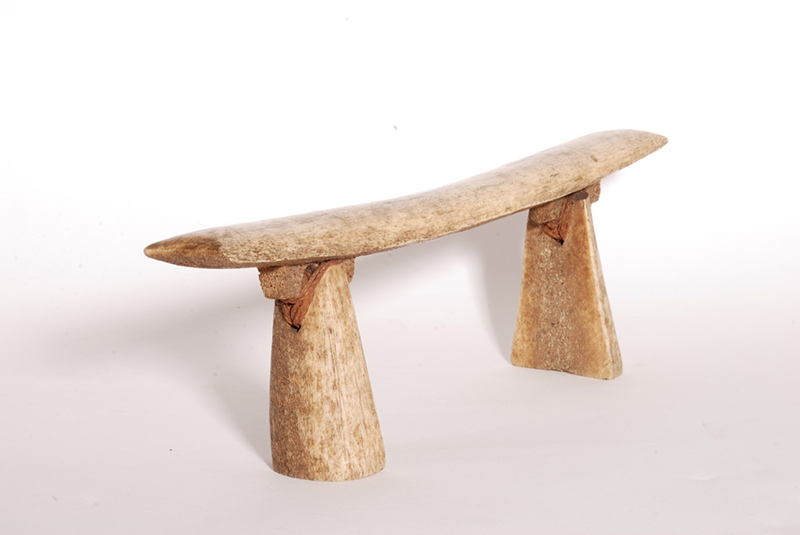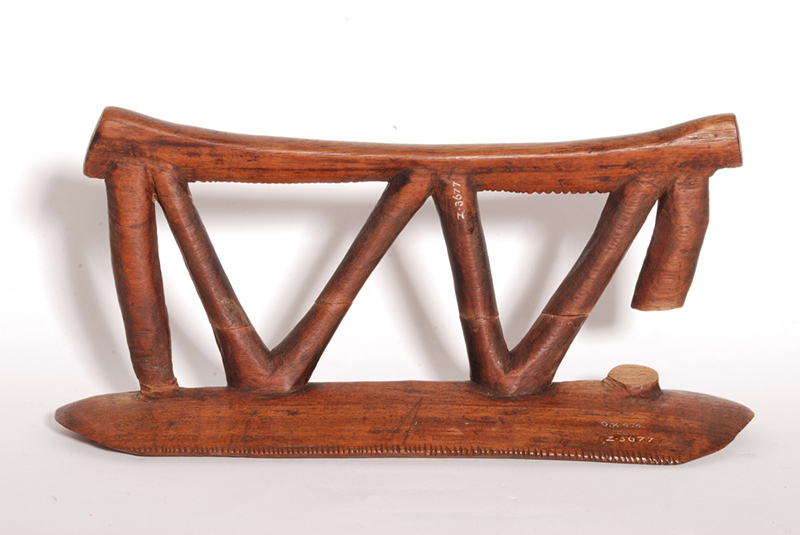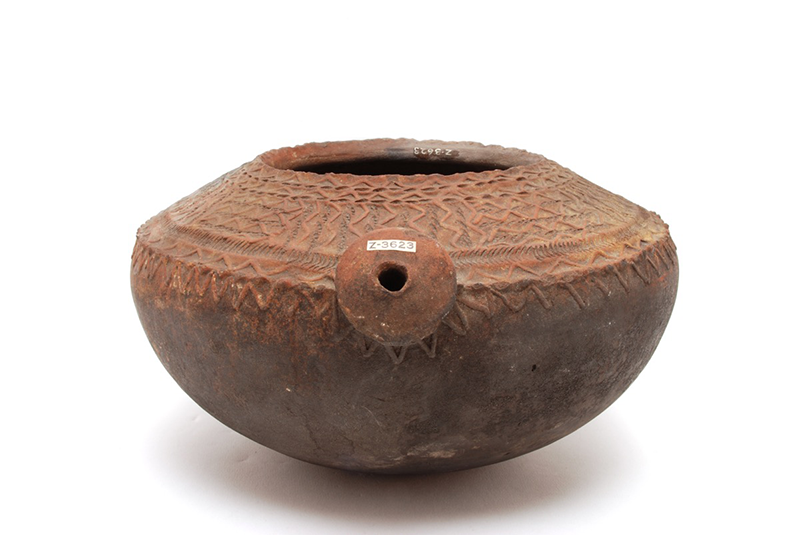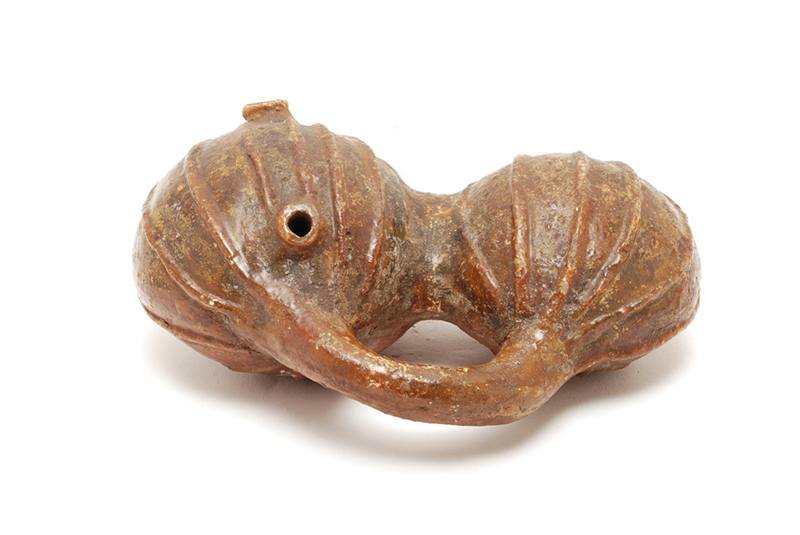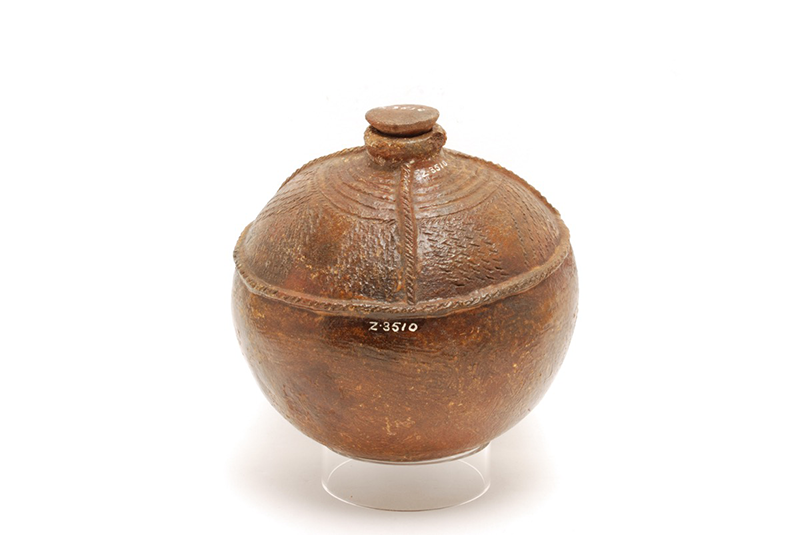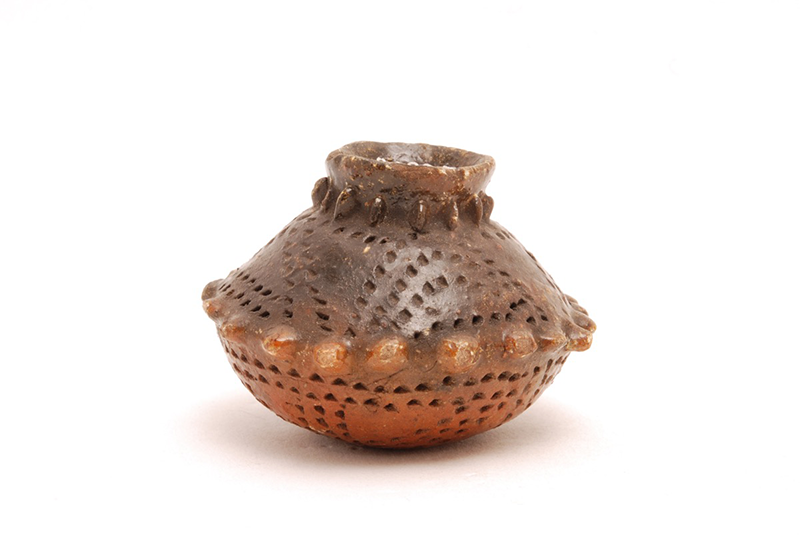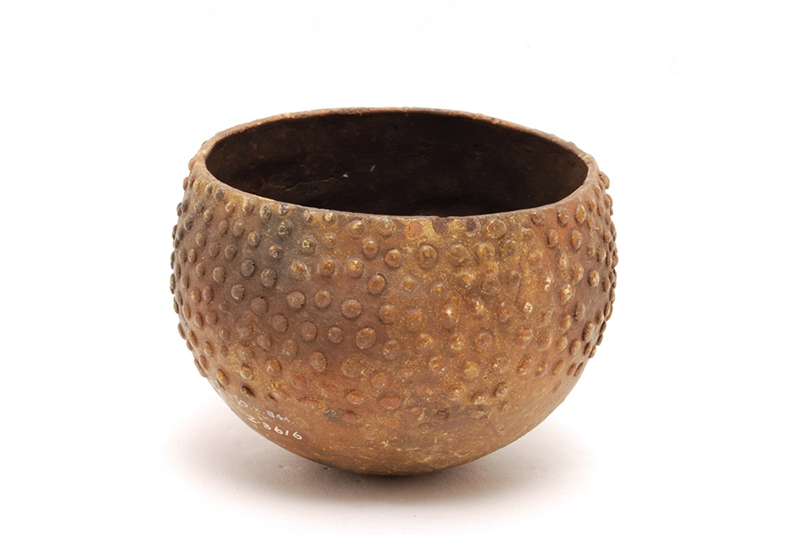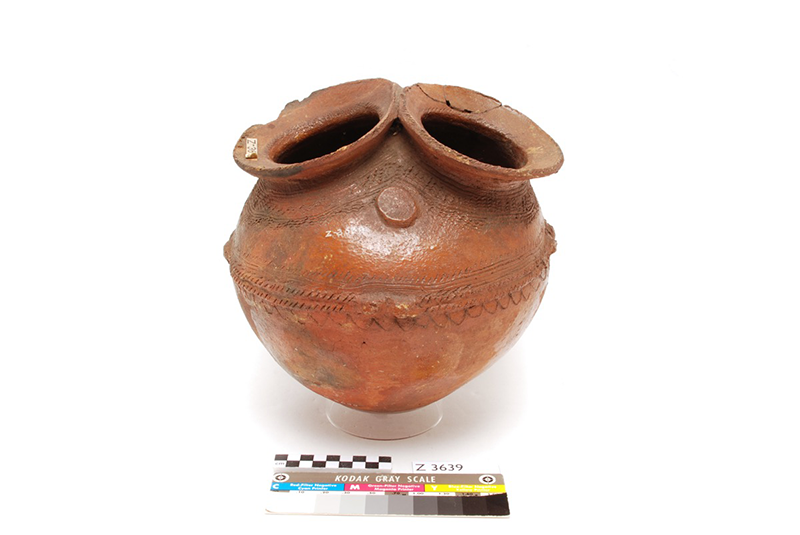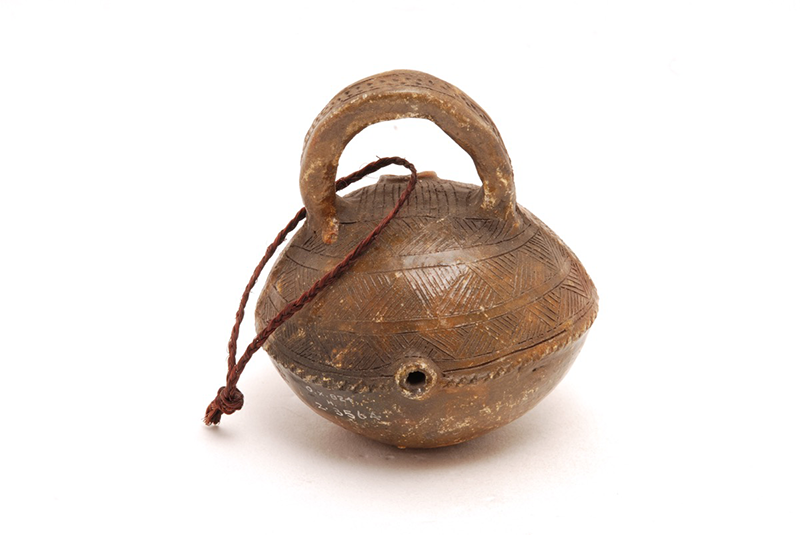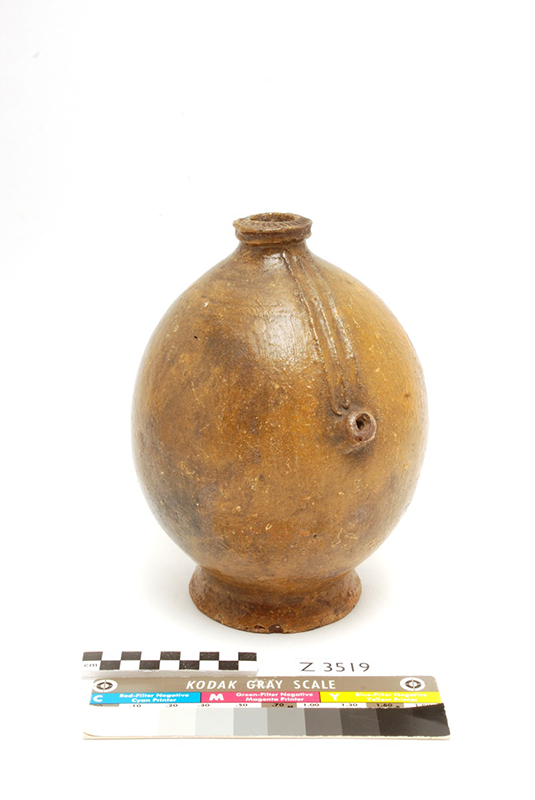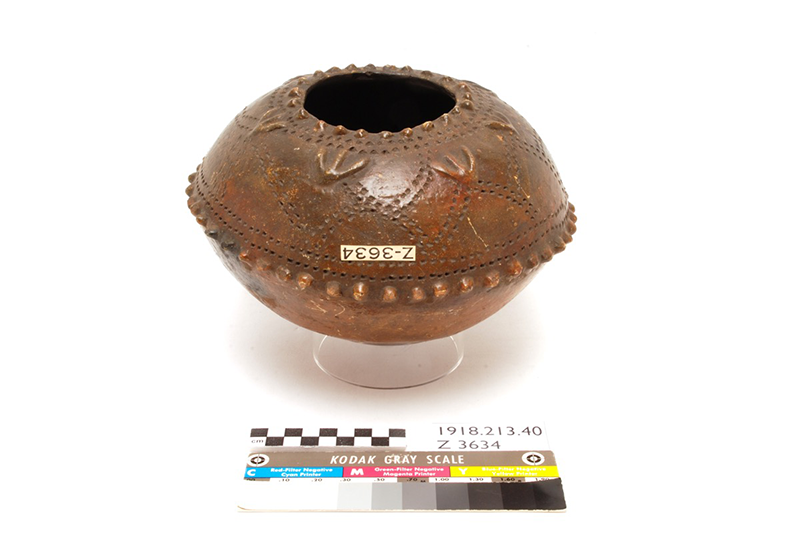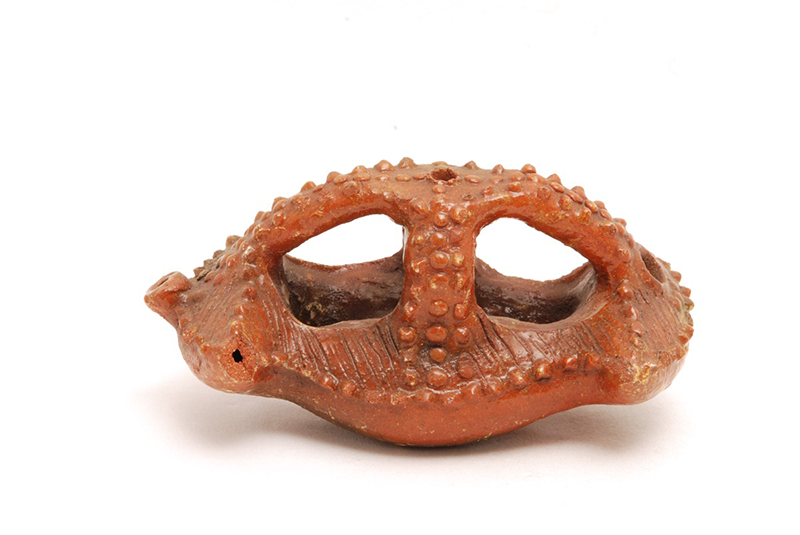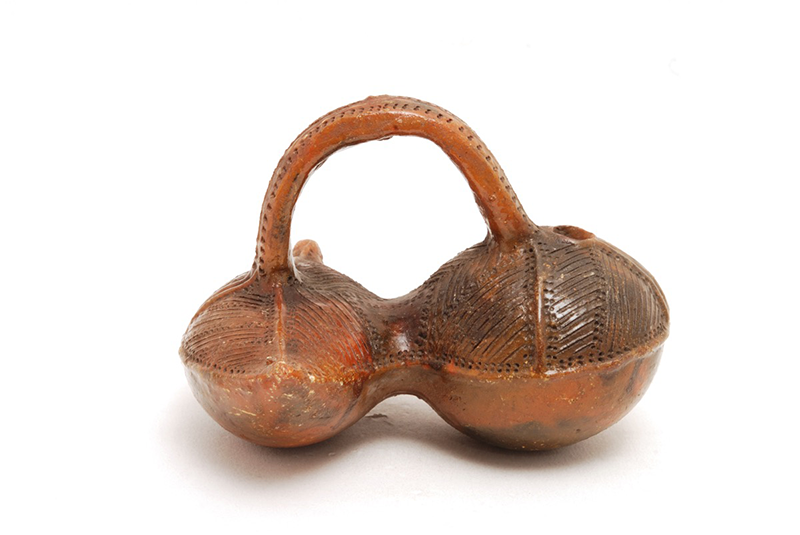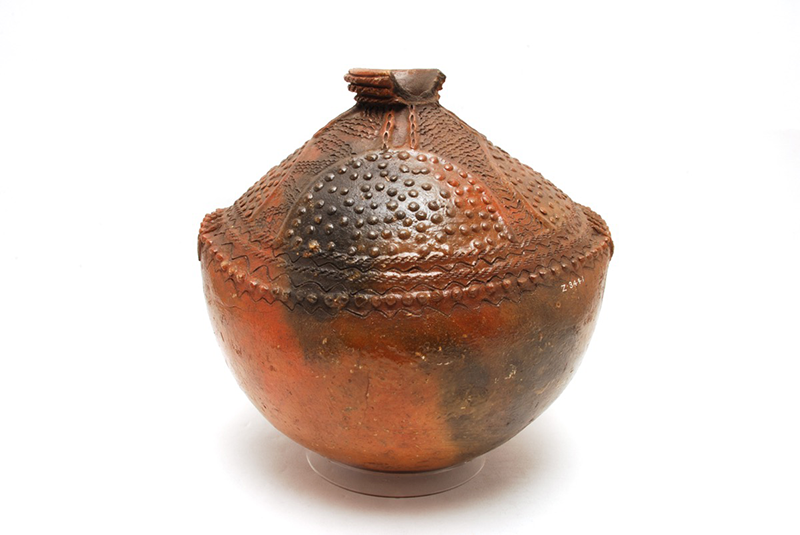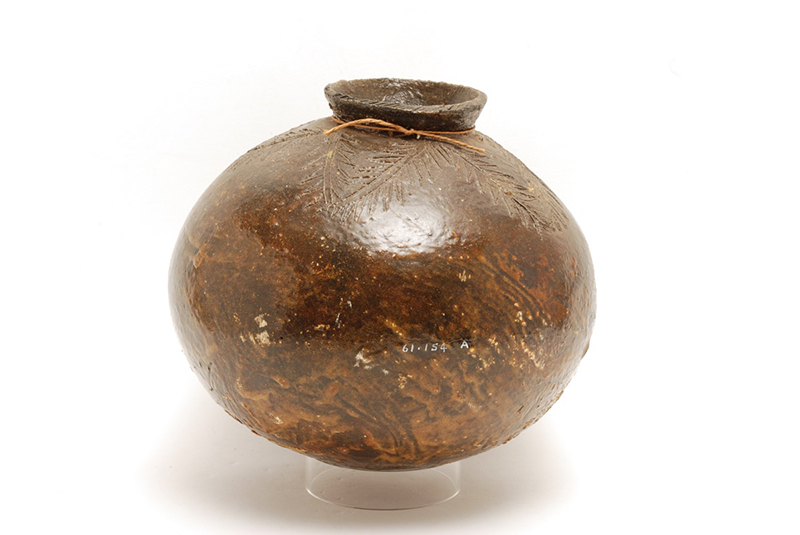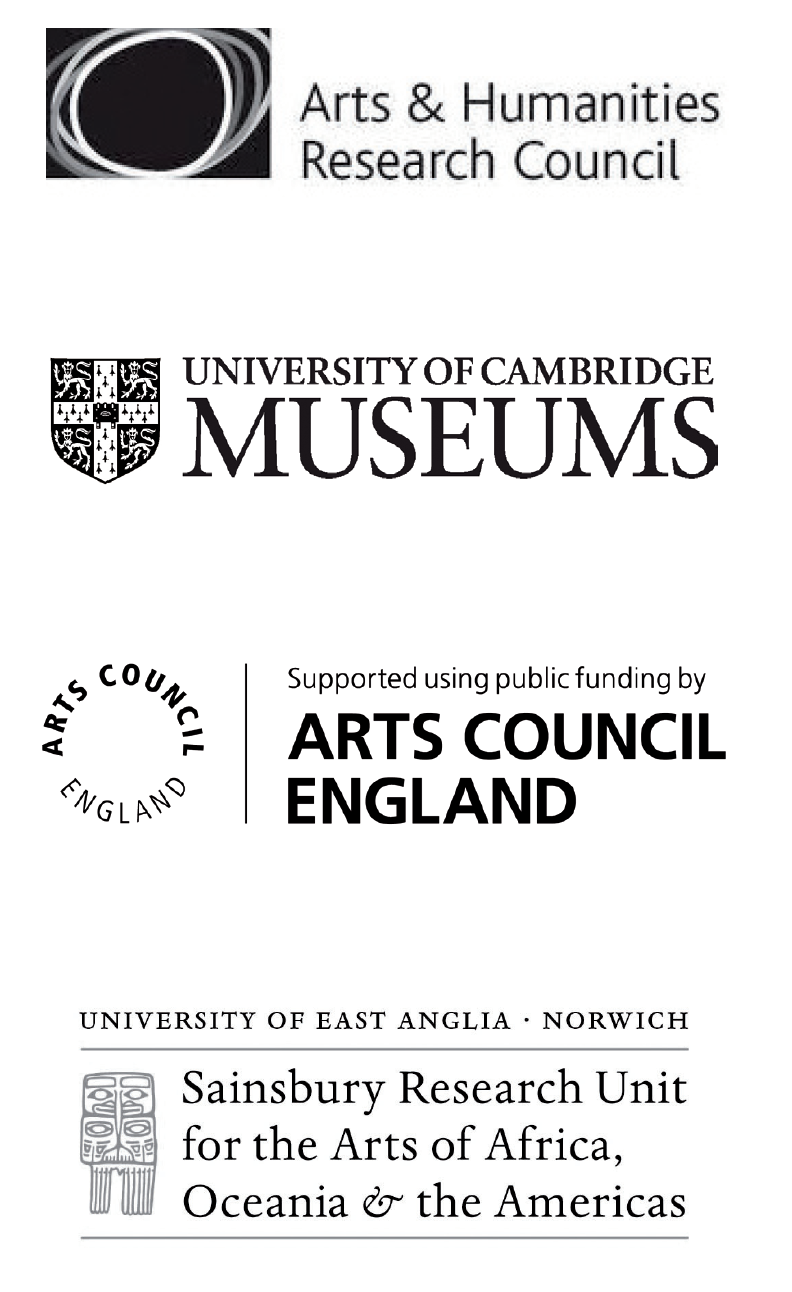Many of the Fijian objects that bedecked Government House became part of the Museum's founding collections. Encouraged by von Hügel, Gordon and Maudslay (alumni of Trinity College and Trinity Hall respectively) offered much of their Fijian material to the University in 1883.
Their proposal boosted the Cambridge Antiquarian Society's longstanding campaign for a building to house their collections. On 6 May 1884 the new 'Museum of General and Local Archaeology' was opened as an annexe to the Fitzwilliam Museum on Peterhouse land. Baron von Hügel was appointed Curator, a position he held for 37 years.
Von Hügel worked tirelessly, drawing on his personal resources and his network of wealthy academics and friends to develop the museum and build up the collections. He energetically pursued new acquisitions, frequenting auction rooms and dealers, instigating museum exchanges and supporting collecting as part of field research by Cambridge-based scholars.
Caricature. 'The Curator's return from a Tunbridge sale in wet weather. I hope your journey across London was not so bad as this'. F.W.G(reen)? Nov. 5, 1902.
The collections were intended for teaching and comparative research. Over the next two decades the Museum was central to the development of the specialist disciplines of archaeology and ethnology (later social anthropology).
From its beginning the Museum was overcrowded and under-resourced. Von Hügel established a building fund and in 1910 the foundation stone was laid for a new purpose-built museum on Downing Street. The 'University Museum of Archaeology and Ethnology' opened in June 1913. The main gallery on the first floor, now dedicated to world anthropology, was named after Maudslay.
Cabinet of Fijian Ivories. Based on von Hügel's original cabinet of personal ornaments, on display in the Museum's Bevan gallery until the 1980s.
Use the drop down menu below to explore the themes and objects in this section.
"It thus comes about that up to the present von Hügel’s permanent memorial is the Museum. Those who remember the condition of affairs before and during the closing decade of the last-century will know that von Hügel has not laboured in vain."
- Alfred Cort Haddon, Baron A. von Hügel’s obituary, 1928.
2013.14
Von Hügel's foundation stone outside MAA.
Made from strips of pandanus leaf, these flat satchels might have been used to store folded isala or barkcloth turbans. Rubu were popular collection items from the early 19th century, probably because of the extensive range of patterns they display. Some of the motifs, like those on the largest bag displayed in the centre, may have been inspired by lace.
Fiji. Collected by Sir A. Gordon, 1875-80. 1918.213.31 E
Fiji. Collected by A. von Hügel, 1875-77. Z 4068
Fiji. Provenance unknown. Z 4056
Fiji. Collected by Sir A. Gordon, 1875-80. Z 30023
Fiji. Collected by A. von Hügel, 1875-77. Z 4060
Fiji. Collected by Sir A. Gordon, 1875-80. 1918.213.31 B
Carved from a solid piece of vesi wood and standing on intricately carved pedestal bases, these yaqona dishes were used by priests. While the form of the upper part of the dish remains relatively constant, the variety of shapes of the pedestal base testifies to the creativity of Fijian wood-carvers. A few duck-shaped yaqona dishes are known. This one was probably used for scented oil rather than yaqona.
Fiji. Collected by C. Gordon Cumming, 1875-77. Z 3379
Fiji. Collected by Sir A. Gordon, 1875-80. Z 3351
Fiji. Collected by C. Gordon Cumming, 1875-77. Z 3458
Fiji. Collected by G. K. Roth, c. 1935. 1954.336
Fiji. Collected by Sir A. Gordon, 1875-80. Z 3423
Fiji. Collected by A. Maudslay, 1875-80. Z 3380
Fiji. Acquired by Sir A. Gordon from F. Dufty, 1875-80, Levuka, Ovalau Island, Fiji. Z 3354
Fiji. Collected by Sir A. Gordon, 1875-80. Z 3355
Placed at the back of the skull, kali supported the head while sleeping. Although serving a common function, these headrests took a wide range of shapes. The variety of materials (bamboo, wood, whale bone) and techniques employed (made from a single piece of wood or from several elements assembled with coir cords) may suggest different areas of production.
Rewa Province, Viti Levu, Fiji. Collected by A. von Hügel, 1875-77. Z 3660
Fiji. Collected by A. Maudslay, 1875-80. Z 3692
Fiji. Collected by A. Maudslay, 1875-77. Z 3664
Nasogovatu, Wainibuka River, Viti Levu, Fiji. Collected by A. von Hügel, 1875-77. Z 3682
Fiji. Collected by A. Maudslay, 1875-80. Z 29981
Fiji. Collected by Sir A. Gordon, 1875-80. Z 3673
Viti Levu Highlands, Fiji. Collected by A. von Hügel, 1875-77. Z 3689
Nadrau, Viti Levu, Fiji. Collected by Captain L. Knollys, c. 1876. Acquired by A. von Hügel from W. D. Webster, 1904, London. Z 3684
Kadavu, Fiji. Collected by A. von Hügel, 1875-77. Z 3676
Fiji. Collected by A. Maudslay, 1875-80. Z 3677
Fiji’s pottery traditions date back to the Lapita people over 3,000 years ago. Many changes in technique and style have occurred since then. In recent times, pots made of a mix of clay and sand, hand-formed, and glazed with the makadre gum of the dakua pine (Agathis vitiensis) have been used throughout Fiji. Their shape is often inspired by nature: imitations of citrus fruits; grape-like bunches of globular containers (saqamoli), ribbed vessels modelled on leba fruits and crescentic pots evoking plantains.
Fiji. Collected by C. Gordon Cumming, 1875-77. Z 3623
Fiji. Collected A. von Hügel, 1875-77. Z 3569
Fiji. Collected by Sir A. Gordon, 1875-80 or J. S. Gardiner, c. 1897. Z 3510
Fiji. Collected by Sir A. Gordon, 1875-80. Z 3568
Fiji. Collected by A. von Hügel, 1875-77. Z 3616
Fiji. Probably collected by A. von Hügel, 1875-77. Z 3639
Fiji. Collected by A. von Hügel, 1875-77. Z 3564
Fiji. Collected by Sir A. Gordon, 1875-80. Z 3519
Fiji. Collected by Sir A. Gordon, 1875-80 1918.213.40
Fiji. Possibly collected by Rev. D. Wheeler, 1830s. Donated by G. Brady. Z 3498
Fiji. Collected by A. von Hügel, 1875-77. Z 3530
Fiji. Collected by Sir A. Gordon, 1875-80. Z 3441
Yanuya, western Fiji. Collected by G. K. Roth, October 1956. 1961.154 A


